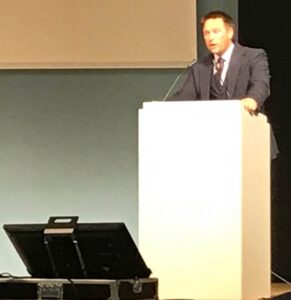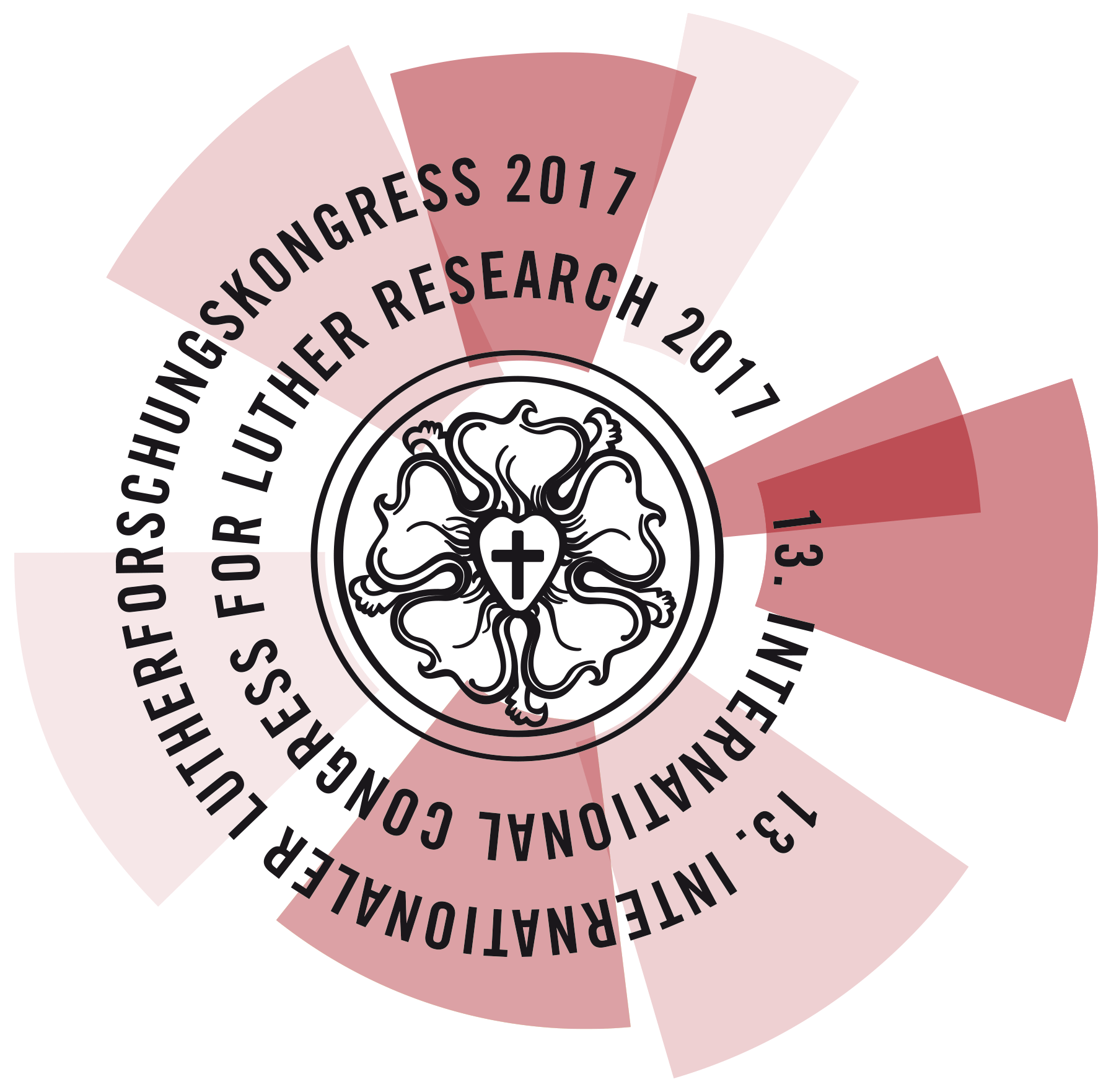Editor’s note: This past summer, Concordia Seminary Professor Erik Herrmann was invited to give a plenary paper at the International Congress for Luther Research in Wittenberg, Germany. This Is not an insignificant matter. The International Congress for Luther Research meets only once every five years. It consists of those who are generally recognized as Luther scholars and who have published on Martin Luther’s life and work. To be invited to give a plenary address (which will in turn be published in the Lutherjahrbuch) is an incredible honor, and, more importantly, a recognition by the most influential Luther scholars in the world that the quality of one’s work will shape the future of Luther research. We have asked Dr. Mark Mattes (himself a former plenary speaker and member of the continuation committee) to offer his reflections and reactions to Dr. Herrmann’s paper.

Midwestern Lutheran theologians tend to be like the fictional characters in Garrison Keillor’s Lake Wobegone: unassuming, deferential, and not apt to toot their own horns. Many belong to synods with an immigrant background and even to this day are unassured about their place on the wider academic stage. Some Lutheran Church–Missouri Synod leaders settle for pure doctrine (which is a necessary and good thing!) but care little if their views are heard in the highest levels of scholarship. After all, when so many secular-minded scholars in the American Academy of Religion or the Society of Biblical Literature flaunt their more or less heretical beliefs, orthodox theologians revel in it precisely because they fail to fit into this wider academic culture. Even so, there are several remarkable LCMS theologians who nimbly navigate both the secular academy and their native confessional circles. Leading this cohort is Robert Kolb, the foremost English-speaking Luther scholar, a man whose brilliance, along with his gentility, commends the respect of the highest tier of academic historians. This is a good thing. It is not the case, as some have thought, that the glory days of Missouri theology are over. Indeed, there are several LCMS soloists in the current theological chorus who, in additional to Kolb, carry weight. Once such younger voice is Erik Herrmann’s.
This was evident when Herrmann delivered his plenary address “Luther’s Divine Aeneid: Continuity and Creativity in Reforming the Use of the Bible” at the International Congress for Luther Research in Wittenberg, Germany, in August 2017. Having addressed the Luther Congress with a plenary in 2012, I am aware of the amount of preparation both academically and emotionally that it takes. Herrmann presented a remarkable paper, one which left even the most accomplished scholars spellbound. Honoring the Congress’ focus on the young Luther, Herrmann demonstrated a mastery of current approaches to Luther, highlighting the young Luther’s monastic, indeed mystical, spirituality, along with his appreciation for a biblical humanism.
No doubt Herrmann’s use of the word “mystical” raises red flags. After all, Luther fought Schwärmerei head on; he should not to be incriminated with garden variety Pentecostalists. In no way does Herrmann associate Luther with that kind of spirituality. Herrmann is keen to recognize that God’s truth comes to sinners as an external word. However, Herrmann builds upon newer Luther research which underscores how Luther adapted mystical insights, especially from Johannes Tauler, Bernard of Clairvaux, Augustine, and his mentor Staupitz, based on his study of scripture. Through his own processing of their insights he found the nature of faith. These mystics, to varying degrees, helped him replace an “active righteousness,” that is, legalistic practices designed to help one humble oneself before God, with a “passive righteousness,” which acknowledged that God is ever working to humble sinners, and, through the word, creates the faith that honors God’s divinity. Specifically through the law, God reduces proud and self-focused sinners to nothing and thus leaves no other way for sinners to find comfort and security other than in Christ, who for Christians is assuredly a gift and no longer merely an example.
Indeed, along with Herrmann, other scholars note that Tauler’s concept of a passive life established by God helped Luther find a path outside of the prevailing Nominalistic covenant (pactum) theology which argued that God would reward with grace those who do their very best, and so was pivotal in aiding Luther’s disentangling God’s commands from God’s promise. In spite of Luther’s later vehement complaint about the monastic life as inconsistent with the gospel, the young Reformer was deeply influenced by monastic spirituality, which, in contrast to the university curriculum, was centered on the Scriptures and not Aristotelian-based scholasticism. Processing his monastic, even mystical, context, Luther was able to affirm prayer, meditation, and trial (oratio, meditatio, tentatio) as the means whereby God makes a theologian.
In his theological work, Luther resituated faith in the place of love as the gravitational center of the Christian life. He did this not to discredit love, but instead to allow love to be genuine, no longer a means to secure one’s own wellbeing in eternity. That is, we should not do good to others in order to lesson our time in purgatory but in order genuinely to help those in need. Luther saw that because one suffers the effects of the Word, our mystical impulses, in our quest for union with God, are completely reshaped. The law is no longer to be understood as a figure indicating deeper spiritual realities, as Luther understood it in his early Psalms lectures (the Dictata), but instead as a means whereby God accuses humans of their sin and so eliminates their potential for self-deification. Nor is the gospel to be seen any longer as “new law,” but instead as the gift of God’s righteousness in Jesus Christ gratuitously imparted to sinners. Nor is God born in the soul as the mystic hoped, but instead sinners are reborn in the Word: “rather than the mystical birth of God in the womb of the pious soul, it is we who suffer a mystical birth in the womb of the Word” (p. 13).
To my way of thinking, Hermann’s situating Luther more in his medieval context, and less as a proto-Existentialist of the mid-twentieth century, offers a refreshing approach to Luther research. For good reason, many faithful Christians have issues with a “modern worldview.” This view endorses a “disenchanted” view of nature, in which nature is devoid of God (such as God hidden, masked within it), and objectifies nature solely for human control and consumption. Strangely enough, in the modern perspective, nature is emptied of God, but the divine is not extinguished altogether. Instead, the divine migrates into the recesses of the “self” and its quest for authenticity by means of accumulating experiences or material goods. In the language of René Descartes, the self is transformed into a semi-divine “thinking thing.”
In contrast, Hermann’s decisively pre-modern Luther is welcome indeed. Insofar as Luther is correct, the self is no “ghost in the machine” (as Gilbert Ryle presented Descartes’s view of the alleged soul/body distinction), nor is nature to be seen through Max Weber’s lens of “disenchantment,” a world devoid of God. In fact, we have the basis, from Luther, for challenging the violence to the environment and the individual that secular approaches incur. By relativizing the modern perspective, we can challenge its tendency to reduce truth to quantification, which thereby heightens the powers of reason in all matters (and not just matters coram mundo). As has long been realized, but which is hard for many secularists to admit, science does not establish its own criteria for truthfulness. Science cannot scientifically verify that it alone has access to the truth. It assumes a prevailing narrative, context, or worldview. (Secularism often assumes either an Epicurean or a Gnostic worldview.) In short, there is no scientific reason to privilege a secular worldview. Instead, as Melanchthon taught, the fact that the world is orderly and capable of scientific inquiry implies that design and not chance is the better, more reasonable explanation for the cosmos’s existence. Hence, in good conscience, we can claim a post-secular outlook on the world. Christians need no longer seek, as second-class citizens, to carve out a tiny niche of subjective existential experience within a world largely shaped by nihilistic assumptions. Instead, along with the old Luther in the Genesis Lectures, we can start asking our secular friends about humanity’s final purpose, which for Luther was indicated by mathematics, that humans are destined for eternal matters.
But Herrmann’s view of Luther also raises another red flag. Insofar that Herrmann notes Luther’s indebtedness to Staupitz, indeed as something of Staupitz’s protégé, especially when Luther centered his teaching, and so the theological curriculum at Wittenberg, on the study of Scripture (Psalms, Romans, Hebrews, etc.) and not Peter Lombard’s Sentences, we deal, in some sense, with a “catholic” Luther. That is, when Luther proceeds to teach, he represents not the scholasticism of the university but the monastic heritage which so valued praying and meditating on Scripture. To be sure, this “catholic” Luther is not Roman. But he does represent voices of reform within the medieval catholic world.
If I would pose any word of caution with Herrmann’s work, it would be his (and others’) tendency to designate law and gospel as “existentialist” categories. The perception of Luther as an existentialist, now well over seven decades in the making, is anachronistic. Herrmann’s intentions are good: he means that both the law and the gospel are effective words, the law kills and the gospel makes alive. So, the designation “existential” is acceptable, but only with the proviso that Luther is no student of Kierkegaard’s and thus no existentialist in the modern sense. That descriptor would fit all too well into Max Weber’s disenchanted world and modernity’s “sacred self.” In my judgment, it would be better simply to acknowledge that Luther’s view is highly experiential (not so dissimilar from Augustine’s Confessions which likewise recognizes an alien work of God even if it is not explicit), but where experience is thoroughly shaped by and saturated with the Word.
LCMS pastors, leaders, and laity can be proud of the scholarship evidenced in Kolb, Herrmann, and others. By no means have the bright lights of Missouri been dimmed. Indeed, it could well be that we are seeing the beginnings of a renaissance in Missouri theology. May God grant that it is so.
Mark Mattes
Grand View University
Des Moines, Iowa


Leave a Reply
You must be logged in to post a comment.